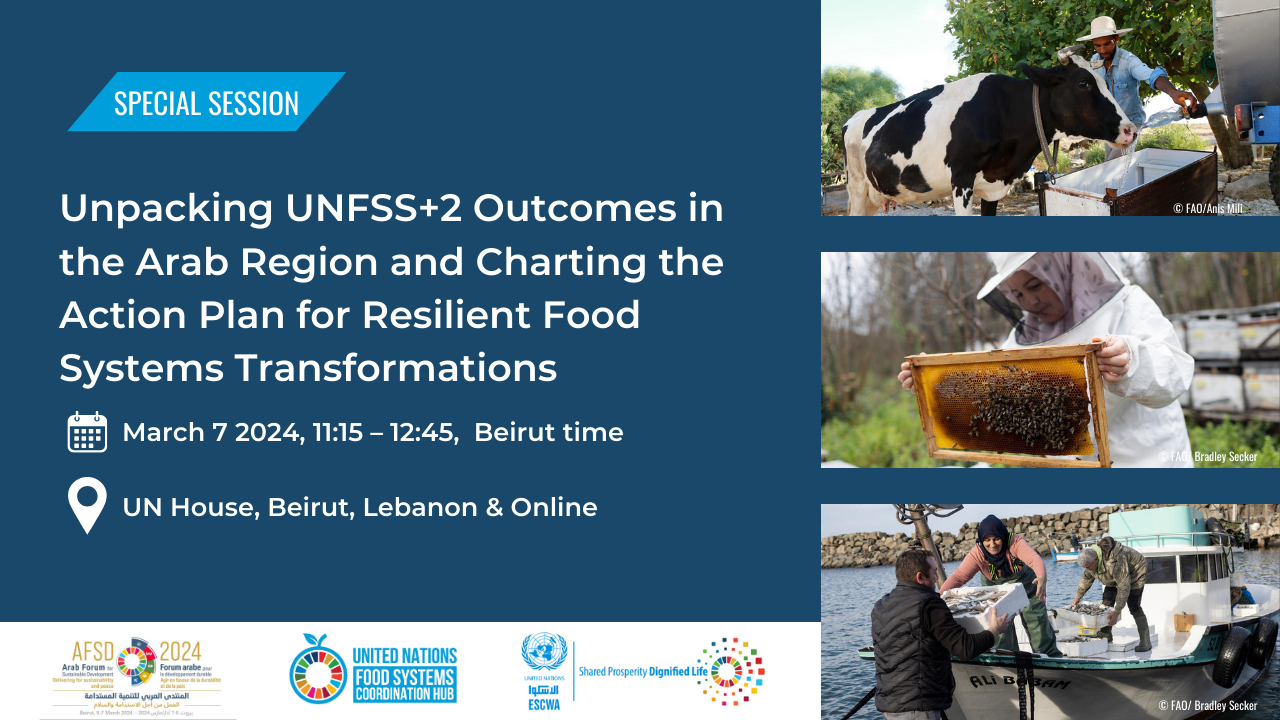Food for Thought: Unpacking UNFSS+2 Outcomes in the Arab Region and Charting the Action Plan for Resilient Food Systems Transformations
Hybrid Event, 07/03/2024

©FAO/Marwan Tahtah
Special Session at the Arab Forum for Sustainable Development (AFSD).
March 7. 11:15 – 12:45. ESCWA. Beirut, Lebanon.
The UNFSS+2 Secretary-General's report highlights the
transformative potential of food systems and urges integrated
strategies for accelerated progress towards the SDGs. With
126 national pathways and 155 National Food Systems
Convenors guiding reforms globally, leaders are called to
prioritize implementing future food systems in six key areas.
The upcoming event aims to provide an overview of UNFSS+2
outcomes, emphasizing their relevance to the Arab region and
their impact on SDGs implementation. Through a roundtable
discussion involving member states, the private sector, civil
society, and regional organizations, the objective is to
formulate a region-specific recommendation, aligning
UNFSS+2 momentum with local priorities.
Questions to be addressed.
- Key Takeaways from UNFSS+2: What were the most significant outcomes from UNFSS+2, and how do they relate to the Arab region's specific challenges and opportunities?
- Regional Priorities: What are the specific regional priorities and needs of the Arab region when it comes to food systems, and how can they be aligned with the global objectives of UNFSS+2? What progress has been made for food systems transformation in the Arab region?
- The Role of Member States: What roles and responsibilities do member states have in implementing the insights from UNFSS+2 in the Arab region, and how can they collaborate effectively?
- Private Sector Engagement: How can the private sector play a transformative role in enhancing food systems in the Arab region, and what incentives or commitments are needed to drive sustainable practices?
- Civil Society Perspectives: What are the key recommendations from civil society stakeholders regarding food systems in the Arab region?
- Regional organizations: how can regional organizations
and researchers better support national governments
and other key stakeholders for food systems
transformation?
